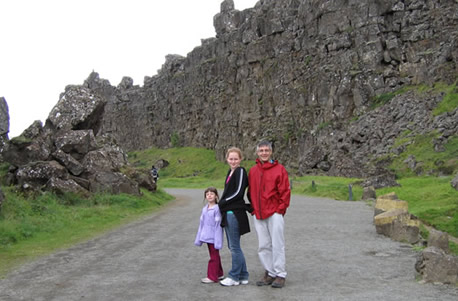I agree with Maria Farrell and others that the New Orleans disaster has displayed aspects of American life that are grievously wrong. People died because they couldn’t afford to leave the flooded city. The government failed to help them, just as it had failed to protect them in the first place. The ones left behind were mostly African American and poor. Until the water destroyed their homes, they had lived in one of America’s many ghettos: large, socially isolated areas of poverty and high crime, also marked by very poor municipal services, blighted buildings, and a lack of business investment. I don’t think there is anything quite comparable to an American ghetto elsewhere in the developed world. There are poor neighborhoods in Europe, often inhabited by people of color. But they are much smaller and less dangerous than the ghettos of the US.
Obviously, these points have ideological significance. It is usually liberal leaders (along with some interesting libertarians, such as Jack Kemp) who emphasize the need to address massive poverty and racial exclusion. When voters observe the New Orleans ghetto after a disaster and recognize the vulnerability of its citizens, they may move leftward. Since the poverty and vulnerability are real, it is quite appropriate to draw ideological and political lessons from what happened this week. It’s also important to argue that people in New Orleans were victimized and are not to blame for the rioting. We want Americans to draw the lesson that inner-cities need more investment, not that the police should be more aggressive.
However ….
1) We shouldn’t let the issue become narrowly partisan. True, Bush responded to the crisis in a callow and offensive way; yes, his FEMA director is unqualified compared to James Lee Witt, who served under Clinton; and it’s a fact that the budget request of the Army Corps of Engineers was not fully funded. But exactly the same kind of disaster and botched response could have happened under Clinton. Besides, the people of New Orleans have been living under Democratic city and state administrations since Reconstruction. Their schools and police force have been terrible all that time. (I would support spending more per student than the $7,533 allocated by the Orleans Parish schools, and a big increase would require more state and federal aid. But New Orleans’ per-student spending has increased by 27 percent since 1999 and has risen faster than the national average. The results remain quite poor and cannot be blamed mainly on the feds.)
I doubt very much that it will work as a political strategy to try to focus blame on the Bush administration. In the short term, predictably, voters are divided along partisan lines in their estimate of Bush’s performance. There are so many possible targets of blame (including nature, local government, rioters, and long-standing federal policies) that only people who have a particular ideological frame have focused their anger on the president.
In the longer run, voters’ opinions of Bush will become irrelevant. I have always assumed that he would be unpopular by now. But his popularity doesn’t matter much. Republicans will run as outsiders in 2006 and especially 2008, when they will probably nominate an anti-Washington governor or a Bush critic like McCain for president. As for Democrats, they have a chance to win if they (a) figure out what they stand for and (b) find a plausible candidate. If they succumb to the temptation to bash the outgoing administration, voters will once again conclude that they have no answers to America’s problems.
2) We must respond in a way that will make it possible to rebuild New Orleans in a satisfactory way. That is going to require hope and cooperation. Unless individuals feel hope and solidarity, they will do just what Matthew Yglesias predicts and use their insurance money to move away from New Orleans. Hope should come from the fact that America is not simply “selfish and wicked.” It is also a robust democracy with comparatively competent government, strong nonprofit institutions, and an impressive tradition of civic innovation. We are much better than we were 25 years ago at city planning, historic preservation, wetland-conservation, and public engagement. We have models like the Listening to the City process, that convened 800 ordinary citizens to help plan the World Trade Center rebuilding. Even the federal government is getting better at engaging the public.
Anger will be part of any public discussions in or about New Orleans, and genuine rage should not be suppressed. But we cannot afford for outsiders to pursue partisan advantage, because the federal, state, and local governments must work together.
3) There should be an ideological dimension to the debates in town meetings, blogs, and op-ed pages, but there is more than one legitimate ideological perspective to consider. I lean toward the view that people in New Orleans are suffering because of our low levels of public investment and our lack of concern for African Americans. But I know libertarians who think that the New Orleans disaster is an illustration of government’s hubris. In classic New Deal style, the feds taxed and spent money to build levees and drain swamps, thus encouraging people to live in a dangerous place, against the logic of both market and nature. Burkean conservatives should want to preserve as much as possible of New Orleans’ distinctive heritage. Progressives should argue for rebuilding in new and better ways than before. This debate is interesting and important, but it will accomplish little if it narrows to an argument about impeaching George W. Bush (see these comments for a sample).

